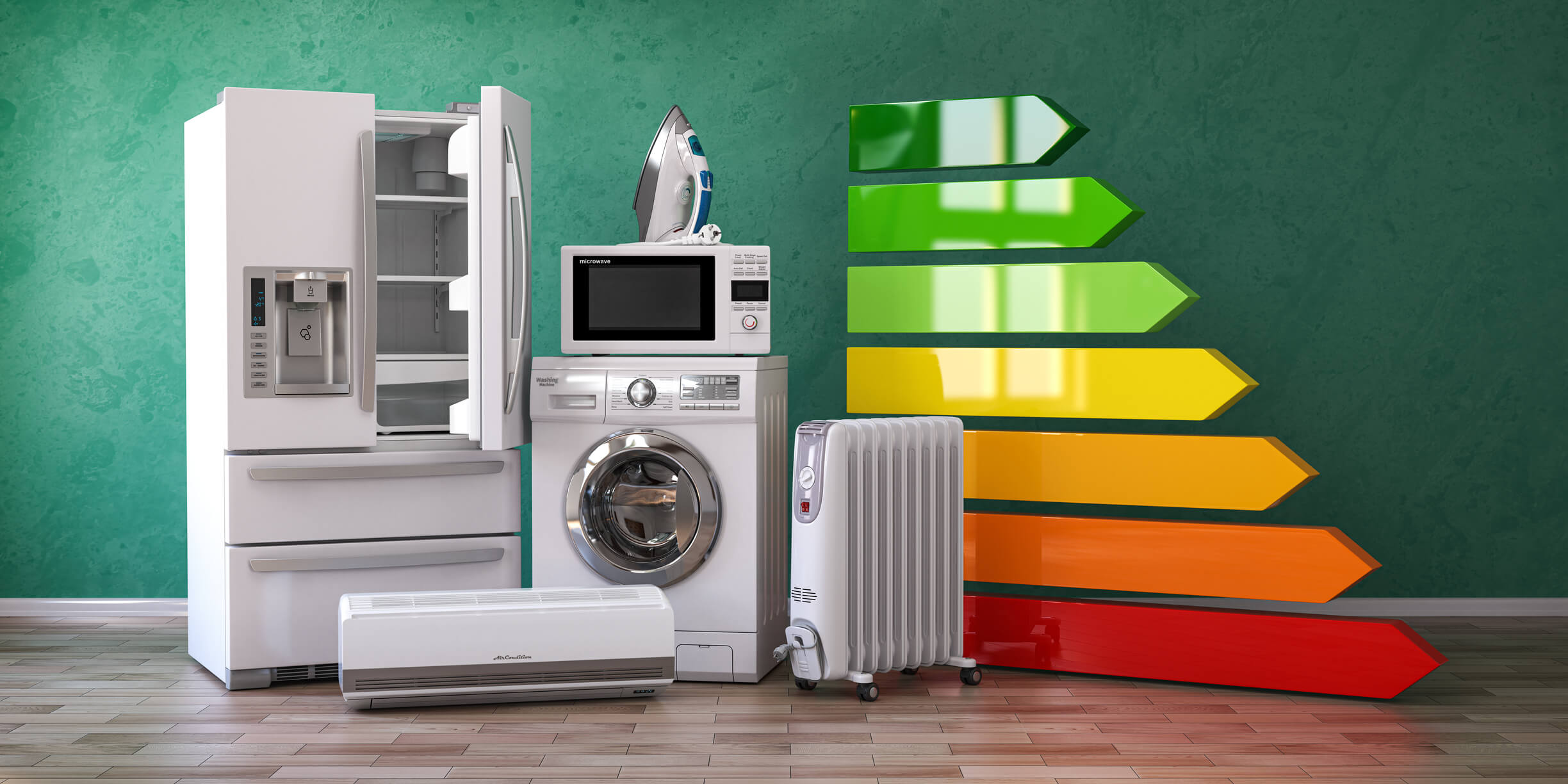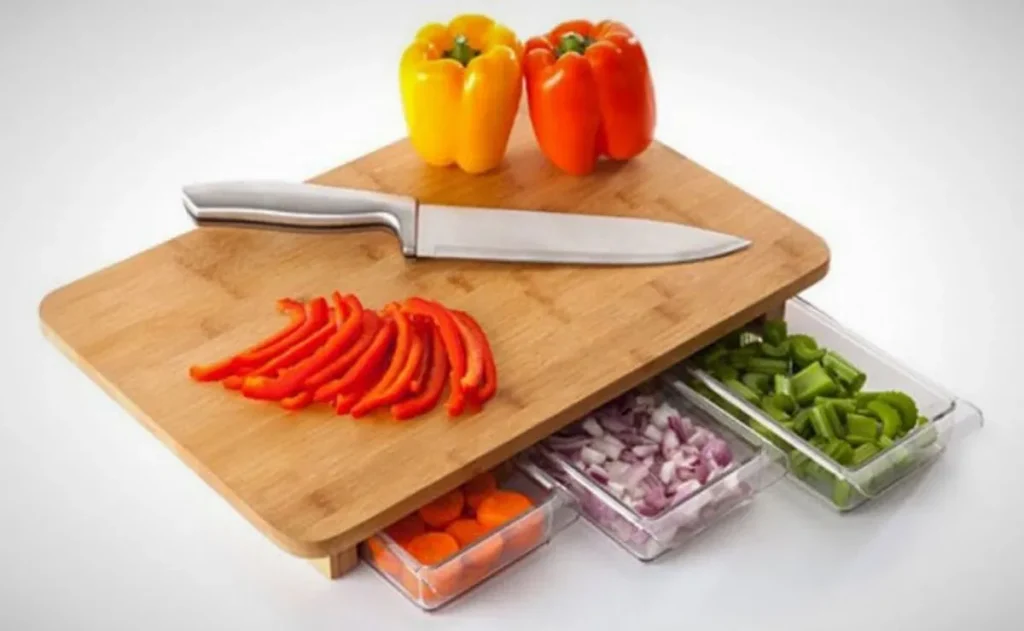Blog
How to Choose Energy-Efficient Kitchen Appliances
In today’s world, choosing energy-efficient kitchen appliances is not just a smart financial decision; it’s also an important step toward environmental sustainability. Energy-efficient appliances can significantly reduce your energy consumption, lower utility bills, and minimize your carbon footprint. This guide will help you understand how to select energy-efficient kitchen appliances, ensuring you make informed choices that benefit both your wallet and the planet.
1. Understanding Energy Efficiency Ratings
1.1. Energy Star Certification
One of the most recognized labels for energy efficiency is the Energy Star certification. This label indicates that an appliance meets strict energy efficiency guidelines set by the U.S. Environmental Protection Agency (EPA).
- Benefits: Energy Star appliances use less energy than their non-certified counterparts, which can lead to substantial savings on your energy bills.
- Availability: Look for the Energy Star label on refrigerators, dishwashers, ovens, and other kitchen appliances.
1.2. EnergyGuide Labels
EnergyGuide labels provide information about the estimated annual energy consumption of an appliance.
- Comparison Tool: These labels allow you to compare the energy efficiency of similar appliances.
- Cost Estimates: The label often includes an estimated yearly operating cost, helping you gauge long-term expenses.
2. Evaluate Appliance Types
Different types of kitchen appliances have varying energy consumption levels. Here’s a breakdown of common appliances and what to look for:
2.1. Refrigerators
Energy Consumption: Refrigerators are among the largest energy consumers in the kitchen.
- Size Matters: Opt for a size that meets your needs. Larger refrigerators consume more energy.
- Features: Look for models with features like dual compressors or energy-efficient lighting, which can reduce energy usage.
2.2. Dishwashers
Energy Consumption: Modern dishwashers are often more efficient than hand washing.
- Soil Sensors: Choose dishwashers with soil sensors that adjust water and energy usage based on load conditions.
- Energy-Saving Modes: Look for models with eco-friendly settings that optimize water and energy use for lighter loads.
2.3. Ovens and Ranges
Energy Consumption: Both electric and gas ovens have their pros and cons regarding energy efficiency.
- Convection Ovens: Consider a convection oven, which circulates hot air for even cooking and often cooks food faster, saving energy.
- Induction Cooktops: These are more energy-efficient than traditional electric or gas cooktops, as they heat up quickly and transfer heat directly to cookware.
2.4. Small Appliances
Energy Consumption: Small appliances can also contribute to your overall energy consumption.
- Select Carefully: Choose appliances like microwaves, toasters, and coffee makers that are Energy Star certified.
- Multi-Functionality: Consider multi-functional appliances (e.g., toaster-oven combos) that can replace multiple devices, saving energy and space.
3. Consider Your Cooking Habits
Your cooking habits can significantly impact the energy efficiency of your kitchen appliances. Here’s how to align your choices with your lifestyle:
3.1. Frequency of Use
Evaluate How Often You Cook: If you cook frequently, investing in energy-efficient appliances can lead to substantial savings over time.
- High Usage Appliances: Prioritize energy-efficient models for appliances you use daily, like refrigerators and dishwashers.
- Occasional Users: For appliances you use less frequently, consider the cost-benefit ratio of energy-efficient versus standard models.
3.2. Meal Preparation Style
Cooking Style Matters: If you often prepare large meals, choose appliances that can handle larger loads efficiently.
- Capacity: For example, a larger-capacity dishwasher can help you wash more dishes in one cycle, saving water and energy.
- Time Efficiency: Look for appliances that offer quick cooking options, such as pressure cookers or air fryers, to reduce cooking times.
4. Research and Compare Brands

4.1. Brand Reputation
Importance of Brand: Some brands are known for their commitment to energy efficiency and quality.
- Read Reviews: Look for customer reviews and expert recommendations to gauge the reliability and efficiency of different brands.
- Warranty and Support: Consider brands that offer good warranties and customer support, as this can indicate product quality.
4.2. Compare Models
Side-by-Side Comparisons: Use tools like EnergyGuide labels and Energy Star ratings to compare similar models.
- Feature Comparison: Make a list of features that matter most to you and compare how different models stack up.
- Price vs. Efficiency: Evaluate the initial investment against potential long-term savings on energy bills.
5. Calculate Potential Savings
5.1. Energy Costs
Calculate Annual Operating Costs: Understanding how much energy an appliance will consume can help you estimate its long-term costs.
- Use Energy Estimators: Many utility companies provide online calculators to estimate energy usage and costs based on appliance ratings.
- Track Your Usage: If you already own an appliance, monitor your energy bills to see how much it costs to operate.
5.2. Return on Investment (ROI)
Consider the Lifespan: Evaluate how long you plan to keep the appliance.
- Long-Term Savings: While energy-efficient appliances may have a higher upfront cost, the savings on energy bills can lead to a good ROI over time.
- Rebates and Incentives: Check for local or federal incentives for purchasing energy-efficient appliances, which can offset initial costs.
6. Assess Additional Features
6.1. Smart Technology
Smart Appliances: Many modern appliances come equipped with smart technology that can optimize energy usage.
- Remote Monitoring: Smart appliances allow you to monitor energy consumption remotely and adjust settings for efficiency.
- Energy Usage Reports: Some models provide insights into usage patterns, helping you make informed decisions about operation times.
6.2. Eco-Friendly Features
Look for Eco Settings: Many appliances now include settings specifically designed to reduce energy consumption.
- Sleep Modes: Appliances that enter low-power sleep modes when not in use can help save energy.
- Water Efficiency: Features like low-flow faucets and water-efficient cycles in dishwashers can further enhance energy savings.
7. Installation and Maintenance Considerations

7.1. Proper Installation
Importance of Installation: The way appliances are installed can impact their efficiency.
- Follow Manufacturer Guidelines: Ensure appliances are installed according to the manufacturer’s specifications to maximize performance.
- Professional Help: For complex installations, consider hiring professionals to ensure everything is set up correctly.
7.2. Regular Maintenance
Routine Checks: Regular maintenance can keep appliances running efficiently.
- Clean Filters and Vents: Regularly clean or replace filters in dishwashers and refrigerators to maintain optimal performance.
- Check Seals: Inspect door seals on refrigerators and ovens to ensure they are airtight, preventing energy loss.
8. Make Eco-Conscious Decisions
8.1. Sustainable Materials
Choose Sustainably: When selecting appliances, consider those made from sustainable or recyclable materials.
- Eco-Friendly Manufacturing: Look for brands that prioritize sustainability in their manufacturing processes.
- Recyclable Components: Appliances designed for easy recycling at the end of their lifespan contribute to a more sustainable kitchen.
8.2. Energy-Saving Practices
Behavioral Changes: Small changes in how you use appliances can lead to significant energy savings.
- Use Appliances Wisely: Run dishwashers and washing machines only with full loads, and use energy-saving settings when available.
- Timing Matters: Consider using energy-intensive appliances during off-peak hours when energy rates may be lower.
9. Conclusion
Choosing energy-efficient kitchen appliances is a smart investment that benefits both your wallet and the environment. By understanding energy ratings, evaluating appliance types, and considering your cooking habits, you can make informed decisions that lead to substantial energy savings.
Remember to research brands, compare models, and calculate potential savings to ensure that you select appliances that will serve you well for years to come. With the right energy-efficient appliances, you’ll enjoy a more sustainable kitchen that enhances your cooking experience while minimizing your environmental impact. Happy shopping!


